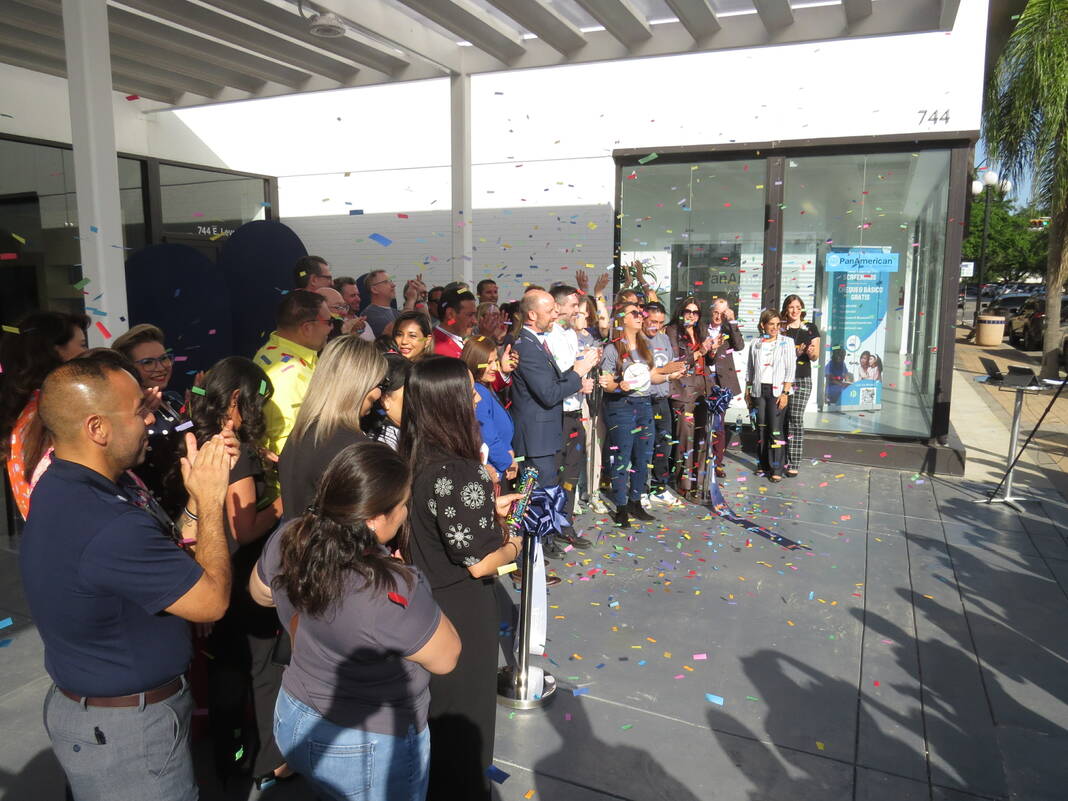|
Only have a minute? Listen instead
Getting your Trinity Audio player ready...
|

Dozens of officials and onlookers gathered at 744 E. Levee St. in downtown Brownsville Wednesday morning to attend a ribbon cutting for the new Lit Fiber BTX Demo Center, the future customer service hub for local broadband internet customers.
The city of Brownsville in 2022 entered into a public-private partnership (P3) with Alabama-based Lit Fiber, which leverages P3s with local governments and municipalities to build and operate “last-mile” fiber networks connecting homes and businesses to high-speed internet.
Delivering comments during the ceremony, Brownsville Mayor John Cowen Jr. said the project was made possible by $20 million through the American Rescue Plan Act, which the city is using to build the “middle mile” fiber infrastructure that will feed the last-mile network. Lit Fiber BTX is footing the bill for the $70 million last-mile component.
Cowen called the partnership between Lit Fiber and the city as a “pivotal moment in our journey towards digital inclusivity.”
“This collaboration is a testament to what we can achieve when public and private sectors unite with a shared vision, providing affordable fiber broadband access to every residence and business citywide,” he said.
Lindsay Whitehurst, Lit Fiber chief marketing officer, said the company will connect its first Brownsville customers early this summer.
“It will be residential homes, and then we’ll build out from there,” she said. “So they’ve been working on all that so we can connect homes quicker.”
Whitehurst estimated it will take roughly three years to build out the entire network, depending on “how big we make the project,” permitting challenges and other factors.
“We’re closing out what we call the middle mile,” she said. “That’s like the main highway that runs through, and we’re starting to build the arteries off of it to have homes connect to it. The arteries are rings, so that they have redundancy, and then the little streets and off ramps from the highway, as I usually explain it, are now the next phase so that people can actually get connectivity in their houses.”
Lindsay Miller, Lit Fiber chief business officer, said residents will be able to go to the Demo Center to sign up for high-speed internet service or talk to a local customer service representative about service issues.
“We will also hold events here,” she said. It’s a very event-friendly space. There’s a roof top available as well.”
Brownsville City Manager Helen Ramirez, moderating a panel discussion after the ribbon cutting, noted that in 2014 Brownsville — the largest city in the Rio Grande Valley — was ranked the least connected in the United States by the National Digital Inclusion Alliance, with 45% of its residents lacking internet access.
“We were the least connected followed by Detroit,” she said. “In 2017 we didn’t do much better. Three years later we were the second least connected city, with Laredo coming in first. That’s not a ranking you want to be in.”
Through the partnership with Lit Fiber, Brownsville is on its way to becoming one of the nation’s most connected cities, Ramirez said. As made clear by the pandemic, connectivity is a necessity and not a luxury, she said.
“This is an important day in the history of the city,” Ramirez said.



